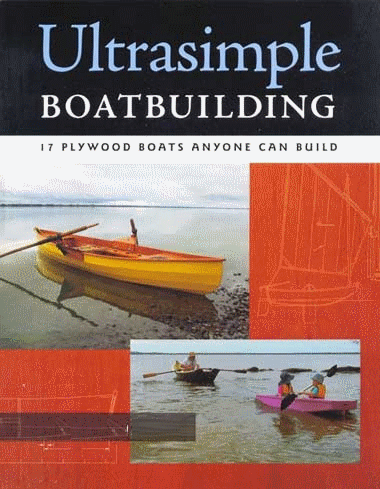

The previous header photo was of the Australian junior class, the Vaucluse Junior, aka the Vee Jay, or simply the "VJ". A 12-foot dinghy, the Vee Jay was originally designed in 1931 by Sydney boatwright Charles Sparrow to a design brief for a junior sailboat given to him by local sporting-goods store owner, Sil Rohu. It was a simple low-angle V-shaped hull, plank and frame construction, readily built by amateurs. The pre-World War II hulls had a small cockpit, similar to the North American Sunfish class.
What makes the class stand out was its transformation after World War II. The adoption of plywood in the late 1940s considerably lightened the hull and sailors started adding planks; the first plank (sliding seat to North Americans) added in the late 1940s but not coming into common usage until the 1950s. The second plank was added by the West Australians in 1958. The small cockpit disappeared, replaced by a self-draining surfboard deck. Combined with a small flat kite (shike), this junior dinghy had enormous power and speed in a breeze - unlike any junior trainer, before or since. (Historian Chris Thompson points out this Australian penchant, after World War II, to incorporate performance upgrades, even to supposed one-designs, even when all the previous models became immediately obsolete, was one of the main drivers in the evolution of Australian lightweight high-performance dinghies.)
The class collapsed in the 1980s under the hegemony and homogenization of fiberglass junior trainers (namely the 420).
I have taken most of my information and photos from the Vee Jay website. For those who wish to read more I would direct them to click on this link to their website. I would also like to thank Aussie, John Fairfax, for also filling in the history and providing photos.
Some additional photos.
The first design by Charles Sparrow was named Splinter. Deciding the first hull was too tender, Sparrow drew up a wider modified hull the same year named Chum from which commenced the VJ class. The original boats had a gunter rig.

Two photos of the simpler, 1930s hiking Vee Jay.


The squat sail plan was easily handled by lightweights in the typically strong Australian breezes.

To me, the most iconic photo of the Vee Jay, "Warren Nupier in Impala"

A promotional brochure with the Vee Jay at full crack, under kite.

This photo shows the final development of the Vee Jay before the class died out (the boom looks shorter with a straighter leech mainsail). There was a recent movement, documented on the Vee Jay website, of bringing back the class with a more modern sail plan, but that hasnt seemed to gain much traction.

A photo lifted from South Gippsland Y.C. of a restored Vee Jay racing at their 2015 Classic Wooden Dinghy Regatta. This is a one-planker, just for the skipper.

A 1950s video showing two juniors rigging, launching, and sailing their Vee Jay.
Ed. Sea Story
"As a young sailor, during the 1970s, I came across a Vee Jay on Annapolis Harbor. I saw this strange craft buzzing about the Harbor, two sliding seats, as we sailed our International 14 out to the starting area. On our way back after the racing, we encountered the same double sliding seat dinghy and sailors again. this time entwined in the fishing lines of two irate fishing boats, the air turning blue as the skipper was working desperately under his rudder. Inquiries on shore had the sailor as someone from the Australian embassy. I never saw him again; most likely the encounter with the fishing boats left a bad taste in his mouth.
And another sea story Ive pulled from the comments... from Northwest sailor Mike S.
"When I moved to Oz in 1965 with wife and daughter in tow, aged 21, I couldnt afford a boat, but someone was selling an old VJ with cotton sails and twin planks for only 10 quid, so I couldnt resist. It was a hoot albeit pretty rough around the edges, and as I didnt have a crew I jury rigged a trapeze (stitched my own canvas harness!) and sailed it singlehanded from the trap. Great fun on Lake Illawarra with steady 15-25 knot breezes every day. Its demise happened during a race, I got a crew and we sailed with the planks, some time during the race the wind piped up, and the old plywood started to open up, with us slowly sinking. We abandoned the boat, climbed aboard the rescue boat and left it to float to the shore. I went the next day and brought it up, but it was too far gone.....Had a metal daggerboard as I recall....
Click here for the post about the other Australian pre-WWII class, the Len Morris scow Moth.



0 komentar:
Posting Komentar